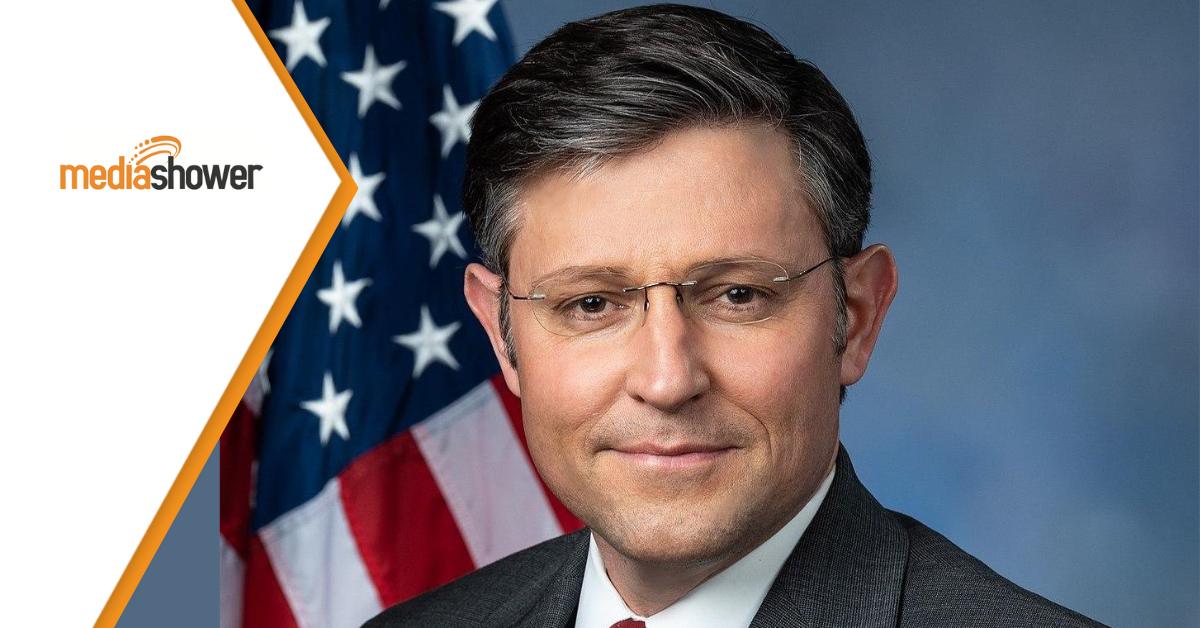
TLDR: After winning the position of Speaker of the House, Representative Mike Johnson (LA 4) had all eyes on what he’d do next. Through a careful combination of gratitude, storytelling, and humility, he could streamline the transition and call for a renewal of the work of the House.
So What? It’s always better to look bigger in victory. Johnson’s speech gives us a masterclass in using humility (through stories and gratitude) to create an ethos that lets him better articulate his and the GOP’s political priorities.
October, 2023. In a startling turn of events, former Speaker of the House Kevin McCarthy (CA 23) was removed from his position through a motion put forward by members of the Republican Party. In the following weeks, the Republicans struggled to propose a candidate palatable to the caucus.
That is, until October 25th, when the party united to elect Representative Mike Johnson (LA 4) to the position.
After Johnson’s ascension to the position, Johnson delivered a speech to address the state of the House and responded to another speech given by House Minority Leader Hakeem Jeffries (You can watch the video below or read the transcript here.)
Gratitude as a Way to Bring an Audience Together
As Johnson takes up the gavel, he makes sure to address the events of the previous days–namely, the struggle to elect a Speaker. In doing so, he articulates both his gratitude that those events are over and his gratitude for those who worked tirelessly through the various sessions:
“I want to thank the dedicated and overworked staff of this beleaguered House. They accept praise so stoically, but Ms. Susan Cole, our House Reading Clerk, and yes, yes, listen, all the clerks and all the staff, you know, they’re terribly overworked. This has been a grueling process, but they have served an integral role in keeping our republic and we thank them for that service. I know we all do.”
He also speaks of his gratitude for his family and the outgoing Speaker, Kevin McCarthy:
“I want to express my great thanks for our Speaker Emeritus, Kevin McCarthy. Kevin has dedicated over two decades of his life to selfless public service, 16 of those years in this House, and you would be hard-pressed to find anybody who loves this institution more or has contributed more to it. He is the reason we’re in this majority today.
…
I want to thank my dedicated wife of almost 25 years, Kelly. She’s not here. We couldn’t get a flight in time. This happened sort of suddenly, but we’re going to celebrate soon.”
Thanking friends and family is a tried-and-true move for anyone accepting an award or commendation, and for good reason. It demonstrates humility in the face of success and shows that the speaker understands and values the people around them who have enabled that success.
Marketers can learn something from this. Not necessarily how to accept a promotion but rather how to talk about their brand or ideas in a way that doesn’t aggrandize or take undue credit. People will typically respond better to humble people than those who seek credit where it isn’t necessarily due.
Acknowledging Opposition and Shared Common Ground Can Create Ethos
At the beginning of the speech, Johnson takes the gavel offered by Minority Leader Jeffries as a symbol of the peaceful transition of authority in the chamber. He then starts his speech by referencing Jeffries specifically:
“I want to thank Leader Jeffries. I look forward to working with you on behalf of the American people. I know we see things from very different points of view, but in your heart, you love and care about this country, and you want to do what’s right, so we’re going to find common ground there, all right?”
This is an important statement, particularly in today’s political climate. Johnson not only thanks Jeffries for his work, but he makes sure to create common ground for people who want to serve their country.
Regardless of whether or not any party believes this, and regardless of how their political ideals will butt heads over the following years, this rhetorical move both soothes a contentious moment while positioning Johnson as a generous, open-hearted speaker. It positions him with an ethos of leadership and a love of country.
Ethos is often the most important aspect of a marketing campaign or asset–whether that’s the ethos of an author or a brand. In a practical sense, this can mean relying on experts and others with great reputations. Beyond that, cultivating ethos can mean using language that doesn’t condemn or trash-talk the competition.
Tell Personal Stories to Humanize a Message

The recounting of his father’s life as a firefighter and the subsequent life-changing accident paints a vivid picture of Johnson’s humble beginnings and the adversities he faced:
“My dad, as it was mentioned, my dad was a firefighter. He was an assistant chief in the Fire Department in my hometown of Shreveport, Louisiana, a little town in northwest Louisiana. On September 17th, 1984, when I was 12 years old, he was critically burned and permanently disabled in the line of duty.”
Johnson tells the story of his desire to become a firefighter, his turn into politics, and his father’s passing. He talks about being overcome with emotion during his first tenure as a representative, not having properly grieved his father’s passing but still serving his district.
His point is relatively simple–that the United States is one of the only countries where the son of a firefighter can rise to the seat of the Speaker of the House. But this story grounds his election and the preceding events in a more human light, softening some potential contention in the chamber.
These stories humanize Johnson, creating a poignant connection between him and the audience. The emotional tone enveloping these stories underscores the gravity of the role he now shoulders, eliciting a sense of empathy and understanding among the listeners, thereby enhancing the impact of his message.
More importantly, it humanizes what comes next: Johnson’s detailing of his vision for the House. After working through the problems he perceives as paramount to Americans, he takes his ethos and emotional connection to promise those in attendance (and those watching from home) that they are committed to solving these problems and that there is a new path forward for bipartisanship that can lead to productive governance.
Most importantly, he uses this time to speak directly to those who might see dysfunction in the recent events in the House:
“Last thing I’m going to say is a message to the rest of the world. They have been watching this drama play out for a few weeks. We’ve learned a lot of lessons, but you know what, through adversity, it makes you stronger and we want our allies around the world to know that this body of lawmakers is reporting again to our duty stations. Let the enemies of freedom around the world hear us loud and clear, the people’s House is back in business.”
A marketer may need more space or opportunity to tell personal stories and harness such ethos. However, these techniques go hand-in-hand. By creating an ethos, telling human-centered stories around services or brands, and maintaining honest integrity (no jargon, no hype), you’ll get more responses from your audience.
Stay Humble to Open Ears and Minds
Representative Johnson tells the story of his political career, stays humble, and shows gratitude as a way to heal some rifts in Congress potentially. Whether or not he is successful remains to be seen, but his speech goes a long way in making such an effort. And, through his techniques, we can see their effectiveness in action.
If you need help crafting effective communication for your target audience, Media Shower wants to use our expertise for your benefit. Get a free trial and find out for yourself.
